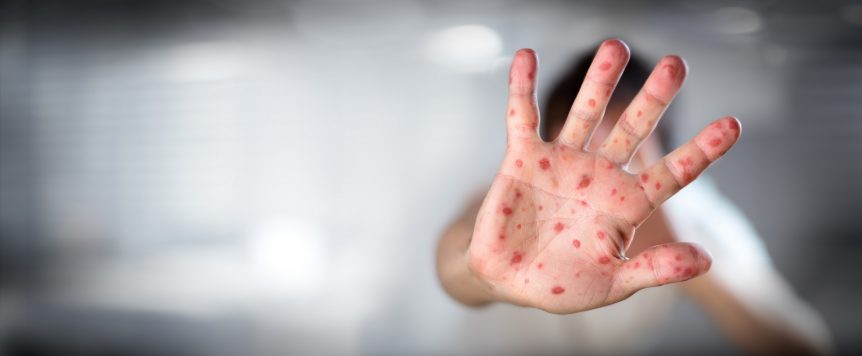Sunshine Coast Public Health Unit has been notified of a confirmed case of measles in a Sunshine Coast resident. The infection was acquired overseas. There is a low risk of further cases of measles. When a patient with measles attends a medical facility, other patients, visitors and staff are at risk of acquiring the infection. The following recommendations will minimise the risk of measles transmission within facilities:
- Triage patients with fever and rash to a room that can be left vacant for 30 minutes after consultation.
- Ensure the patient is wearing a surgical mask while in the facility, particularly if they need to walk through shared or public areas.
- Ensure practice staff in contact with the suspected case are either fully vaccinated (2 doses of MMR vaccine) or have a serologically confirmed history of measles immunity.
The following guidelines are for the management of measles:
- Check that the symptoms satisfy all of the clinical criteria:
- Generalised maculopapular rash (which usually begins on the face, before spreading to the rest of the body); AND
- Fever of at least 38 degrees still present at the time of rash onset; AND
- Cough or coryza or conjunctivitis or Koplik’s spots.
- Notify the public health unit immediately of any case satisfying the clinical criteria.
- Measles PCR of a nasopharyngeal or throat swab (in viral transport medium – not gel) and first catch urine are appropriate in early illness.
Consider opportunistic vaccination for any unimmunised patients attending for any reason. All staff born on or after 1966 should have documented evidence of two doses of MMR vaccine. Due to ongoing measles transmission overseas, it is particularly important for travellers who are not immune or unsure to get vaccinated before leaving Australia.
For more information on measles, please visit: http://conditions.health.qld.gov.au/HealthCondition/condition/14/217/91/measles
Download the alert from the Sunshine Coast public health unit.
Dr Margaret Young, Public Health Physician
4 July 2018

